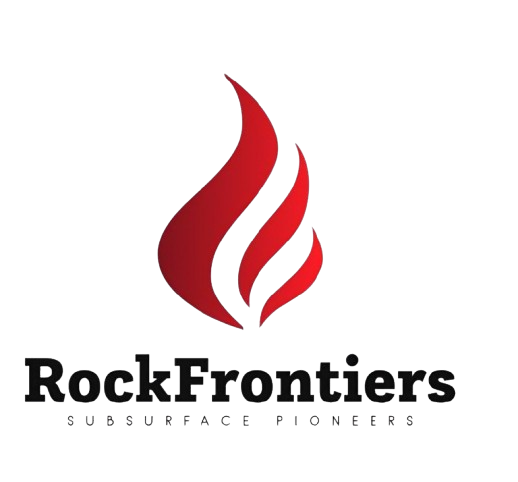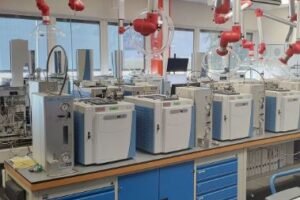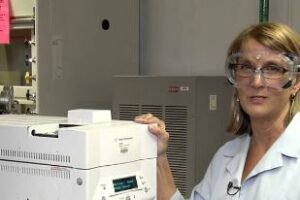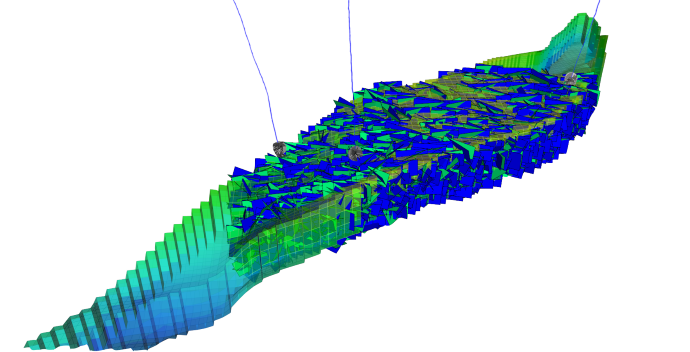Fractured & Unconventional Reservoir Modelling
🎯 Course Description: This Fractured Reservoir Modeling Course provides participants with a comprehensive understanding of how to model fractured and unconventional reservoirs (tight sands, shale, and CBM) using modern techniques and workflows. This course provides participants with a comprehensive understanding …
Overview
🎯 Course Description:
This Fractured Reservoir Modeling Course provides participants with a comprehensive understanding of how to model fractured and unconventional reservoirs (tight sands, shale, and CBM) using modern techniques and workflows.
This course provides participants with a comprehensive understanding of how to model fractured and unconventional reservoirs (tight sands, shale, and CBM) using modern techniques and workflows. The course covers the geological and geomechanical fundamentals of natural fractures, the integration of seismic and well data, dual-porosity/dual-permeability concepts, discrete fracture networks (DFN), and their implementation in static and dynamic reservoir models.
Through lectures, hands-on exercises, and case studies, participants will learn how to build realistic models to guide reservoir performance forecasting and development planning in low-permeability and naturally fractured systems.
👥 Who Should Attend:
-
Reservoir Engineers
-
Geologists and Geophysicists
-
Petrophysicists
-
Production Engineers
-
Subsurface Modelers
-
E&P professionals working in unconventional or fractured reservoirs
🧾 Training Format:
-
Duration: 5 Days
-
Delivery: In-person or Online (Instructor-led Live)
-
Methodology: Theoretical lectures, software-based exercises, team interpretation, and case studies
-
Materials Provided: Digital course manual, interpretation datasets, model-building examples
🗓️ 5-Day Detailed Agenda with Time Breaks
Day 1: Introduction to Fractured and Unconventional Reservoirs
| Time | Topic |
|---|---|
| 09:00 – 09:30 | Welcome & Course Objectives |
| 09:30 – 10:30 | Overview of Fractured and Unconventional Reservoir Types |
| 10:30 – 10:45 | ☕ Coffee Break |
| 10:45 – 12:15 | Geology and Genesis of Natural Fractures in Reservoirs |
| 12:15 – 13:15 | 🍽️ Lunch |
| 13:15 – 14:45 | Overview of Tight Gas, Shale, and CBM Reservoir Properties |
| 14:45 – 15:00 | ☕ Coffee Break |
| 15:00 – 16:30 | Reservoir Quality, TOC, Maturity, and Brittleness |
Day 2: Fracture Characterization and Data Integration
| Time | Topic |
|---|---|
| 09:00 – 10:30 | Fracture Detection: Core, FMI, Seismic Attributes |
| 10:30 – 10:45 | ☕ Coffee Break |
| 10:45 – 12:15 | Structural Controls on Fracture Orientation & Intensity |
| 12:15 – 13:15 | 🍽️ Lunch |
| 13:15 – 14:45 | Stress Regimes and Geomechanical Models |
| 14:45 – 15:00 | ☕ Coffee Break |
| 15:00 – 16:30 | Seismic Interpretation in Fractured Reservoirs |
Day 3: Static Modeling of Fractured Reservoirs
| Time | Topic |
|---|---|
| 09:00 – 10:30 | Fundamentals of Dual-Porosity and Dual-Permeability Models |
| 10:30 – 10:45 | ☕ Coffee Break |
| 10:45 – 12:15 | Discrete Fracture Network (DFN) Modeling – Concepts & Workflows |
| 12:15 – 13:15 | 🍽️ Lunch |
| 13:15 – 14:45 | Building Fracture Models from Structural and FMI Data |
| 14:45 – 15:00 | ☕ Coffee Break |
| 15:00 – 16:30 | Software-Based Exercise: Fracture Intensity and Orientation Modeling |
Day 4: Unconventional Reservoir Modeling Workflows
| Time | Topic |
|---|---|
| 09:00 – 10:30 | Geocellular Modeling for Shale & Tight Gas Reservoirs |
| 10:30 – 10:45 | ☕ Coffee Break |
| 10:45 – 12:15 | TOC, Kerogen Type, Mineralogy & Mechanical Stratigraphy Modeling |
| 12:15 – 13:15 | 🍽️ Lunch |
| 13:15 – 14:45 | Hydraulic Fracture Modeling & Stimulated Rock Volume (SRV) |
| 14:45 – 15:00 | ☕ Coffee Break |
| 15:00 – 16:30 | Integration of Well Logs, Core, and Seismic for Shale Modeling |
Day 5: Dynamic Considerations & Case Studies
| Time | Topic |
|---|---|
| 09:00 – 10:30 | Fluid Flow in Fractured Media – DFN and EDFM Approaches |
| 10:30 – 10:45 | ☕ Coffee Break |
| 10:45 – 12:15 | History Matching and Production Forecasting in Fractured Systems |
| 12:15 – 13:15 | 🍽️ Lunch |
| 13:15 – 14:45 | Case Study: Fractured Carbonates vs. Shale Reservoir Development |
| 14:45 – 15:00 | ☕ Coffee Break |
| 15:00 – 16:30 | Wrap-Up, Participant Presentations, Certificate Distribution |
Target audiences
- Reservoir Engineers, Geologists
You May Like
Gas and oil laboratories in the petroleum industryCopy
Course Description This course provides a comprehensive overview of laboratory practices, techniques, and standards used in the petroleum industry. Participants will understand how laboratory results guide exploration, drilling, production, and refining decisions. The course explores lab procedures for PVT analysis, …
Advanced gas chromatography techniques and troubleshooting
📘 Course Description: This advanced-level course is designed for experienced chromatographers and laboratory professionals who wish to master the latest techniques, applications, and in-depth troubleshooting strategies in Gas Chromatography (GC). The program focuses on method enhancement, selectivity tuning, high-resolution separations, …
🧪 Gas Chromatography Analysis – Principles, Practice & Applications
📘 Course Description: This intensive course provides a comprehensive understanding of Gas Chromatography (GC) and its application in chemical, petrochemical, pharmaceutical, and environmental laboratories. Participants will learn the fundamentals of gas chromatographic theory, the hardware components, detector technologies, sample preparation, …
Gas and oil laboratories in the petroleum industry
Course Description This course provides a comprehensive overview of laboratory practices, techniques, and standards used in the petroleum industry. Participants will understand how laboratory results guide exploration, drilling, production, and refining decisions. The course explores lab procedures for PVT analysis, …
Advanced Specialist Petroleum GeoMechanics
📘 Course Description: This elite-level course is tailored for petroleum geomechanics specialists and senior subsurface professionals engaged in complex field development projects. It provides a deep technical dive into stress modeling, anisotropic rock behavior, coupled geomechanical-reservoir simulation, fault/fracture mechanics, and …





